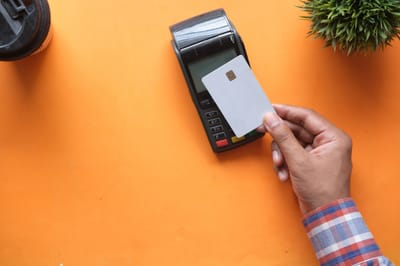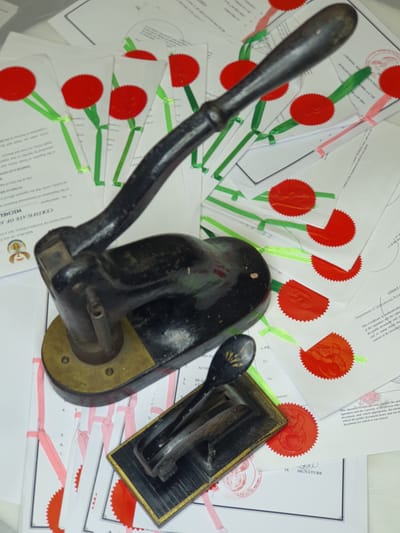Notary Public Services Pretoria
Tel: 0736869078
E-Mail: law@louwrenskoen.co.za
Notary & Document Legalisation Services
Tel: 087 0010 733
Cell: 0736869078
E-mail: info@louwrenskoen.co.za
Louwrens Koen Attorneys
Notary Services PRETORIA - louwrens koen attorneys
Walk-In Notary Public Services to individuals, large and small businesses.
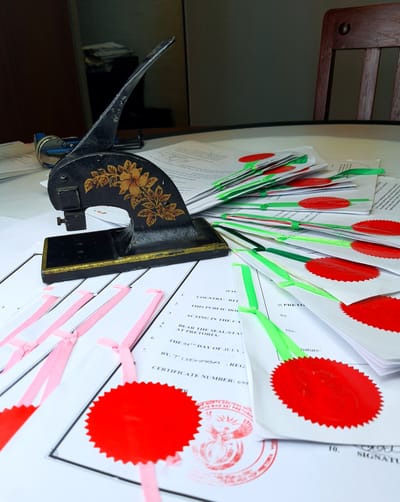
We offer a full range of Notarial Services, including but not limited to the following:
- Notarised copies
- Notary public signature and attestation service
- Notary public document drafting service
- Travelling notary public service for Corporates
- Notarising and taking declarations and affidavits,
- Certification of original documents,
- Verification of personal identity and signature.
- Corporate, Company or Close Corporation verification,
- Embassy Legalisation Services (obtaining legalisation of documents from South African-based Embassies or Consulates)
- Administer oaths for the giving of evidence.
- Witness execution of local and international documents such as Sale and Purchase Agreements, Transfers of land, Assignments of Intellectual Property, Powers of Attorney, Authorities, Deeds, Security Documentation, Mortgages, Company Resolutions, Cessions, Minutes and Reports.
- Verification of Company documents
- Taking Affidavits, Declarations & Depositions.
- DIRCO Apostille Certificate Service
- DIRCO Authentication Certificate Service
- High Court Apostille Certificate Service
- High Court Authentication Certificate Service
- Walk-In Notary Public Service Pretoria
- Drafting and registration of various documents in the office of the Registrar of Deeds
- Document translation service.
Please don’t hesitate to contact us – all enquiries are welcome.
Here is a list of Popular South African Public Documents that we notarise and attest daily:
- Permission letter for minor children to travel or visit overseas.
- Powers of Attorney.
- University degrees, University Academic Transcripts.
- College diploma.
- Technicon Diploma;
- Matric Certificate;
- School Records;
- Doctor, Dentist applications for overseas appointments;
- HPCSA applications in South Africa;
- Birth Certificates;
- Death Certificate;
- Marriage Certificate;
- Divorce Certificates;
- Company Incorporation Documentation;
- Close Corporation Doa documentation;
- Marital status documents;
- Letters of No Impediment;
- Land Transfer and Mortgage documents for transactions outside SA borders;
- Notarised copy of Passport, Drivers License and other identity documents;
- Police Clearance Certificate ("no criminal, please feel free to record") issued by South African Police Services;
- Applications for employment overseas with a supplementary quotation; Contracts.
- Affidavits.
- Declarations.
- Notarised Copies of the Document.
- Applications for employment overseas.
- Miscellaneous notarised documents for use overseas.
- TEFL Certificates
- Health Certificates
- Statutory Declaration
Louwrens Koen is a practising Attorney, Conveyancer and Notary Public in Pretoria, South Africa, with more than 25 years of experience. He was admitted as Attorney by the High Court in 1995 after completing the BLC and LLB degrees from the University of Pretoria. He is also a university guest lecturer in Conveyancing and Notarial practice and heads the Law firm Louwrens Koen Attorneys. He has vast commercial and legal experience, and this expertise compliments his activities as a Notary Public. As Notary Public, he has assisted thousands of Clients with their Notary, and Document Legalisation needs.
Get a Quotation
Pricing
Notary Appointment Checklist
What is a Notary Public?
WhatsApp - Talk to Us
How we can assist you with your document legalisation needs
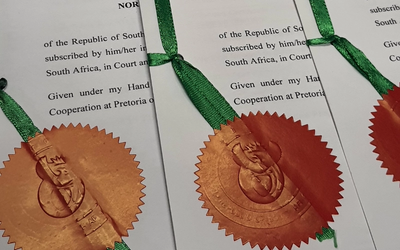
We provide a comprehensive legalisation service for all South African documents, so you can trust that the intended recipient will accept your document. We understand that this may be the first time you have heard of the Apostille Certificate, so we have created this website as a resource to help you understand the process.
We are also here to answer any questions you may have. Our team of knowledgeable advisors can be reached on our SA phone number, 0870010733, or you can get in touch via our contact page.
We are proud to offer an expert service that ensures your document is legalised the right way. Our experience guarantees that the authority will accept the document you intend to present it.
We can, in some instances, have an Apostille Certificate attached to your document within one working day. So, let us help you legalise your documents so you can confidently use them in your dealings outside of South Africa.
Get a Quotation
Pricing
Notary Appointment Checklist
What is a Notary Public?
WhatsApp - Talk to Us
OUR TEAM IS HERE TO ANSWER YOUR QUESTIONS
CONTACT US TODAY AND WE WILL GET RIGHT BACK TO YOU
Notary Document Drafting SERVICE - Public Signature Services
We will draft your legal documents for Notarisation.

- (a) powers of attorney
- (b) proxy delegations
- (c) board resolutions,
- Statutory Declarations
- Affidavits of all kinds
- Child Travel Consent Letters
- Same Name Affidavits
- Power of Attorney (for property & personal care)
- Wills & Estate Documents
- Legal Agreements
- Antenuptial Contracts
- Cohabitation Notarial Agreements
- Notarial Bonds
- Ships Protests
- Cessions
Full document legalisation service for documents to be used overseas
Once a document has been notarised, there may be further steps required so that it can be used in another country. We have in depth knowledge of this process to guide you through the confusing minefield of document legalisation. We are happy to follow through with the legalisation process on your behalf, which may require attendances at the offices of the Department of Foreign Affairs and the embassy/consulate of the country that you wish to use the document.
Professionalism, speed and efficiency
We understand that by the time you realise that you need a document notarised and legalised, it is often required on an urgent basis.
We want to get it right the first time and to meet the deadlines that you are trying to manage.
Message Us Get Quotation
WhatsApp - Talk to Us
WhatsApp Us
Pricing - Notary Services
Complete our Online Quotation for Exact Pricing & Time Frames.
Document legalisation and notary service are dependent on the circumstances at hand and in which destination country your document will presented. Exact pricing is not available until you communicate the factual situation to us. In order to find out what you need and for us quote you, please complete the secure online form below to get the exact costs and time estimate. You can use the incorporated facility to upload any documents you would like us to check.
| R850 PER DOCUMENT | Apostille/Authentication | 5 - 10 working days (DIRCO Appointment) |
| R850 | Apostille at High Court | One business day |
| R3500 | SAPS Police Clearance (from SA or abroad) | 7 - 10 business days |
| R160 PER DOCUMENT | Notary Copy by Notary Public | 15 minutes walk-in service |
| FREE | Certifications (by Commissioner of Oaths) | 15 minutes walk-in service. |
| R850 | Embassy Attestations (Embassy fees added additionally) | 1 day to 2 weeks depending on embassy. |
| R3500 | Letter of No Impediment (single or divorced status) | 1 -4 weeks |
| R3500 | Unabridged marriage certificate (or abridged) | 5 -7 business days |
| R2500 | Surname change (due to marriage or divorce only) | Usually 1-2 weeks |
| R5000 | Vault birth or marriage certificate | 4 - 12 Weeks |
| R3500 | Death certificates | 5 - 7 business days |
| R3000 | Divorce registration Home Affairs | 2 Weeks |
| R2500 | Divorce Order with case number | 1 - 4 Weeks |
| R500 | Settlement Agreement (if exists in the file) added to the above price. | |
| R500 PER PAGE | Translations of Document (Sworn Translator). Price differs - language dependent | 1 - 7 days. |
| R2500 | Criminal record expungements (Form and criteria) | 4 months |
| R300 | We collect-courier or courier from or to a South African address (Courier Guy) | 1 - 3 Business Days |
| R850 | We collect-courier or courier from or to an international address (DHL) | 2 - 6 Business Days |
Pricing
We provide a transparent and highly competitive pricing structure. We are confident that our rates offer customers the best-priced premium service delivered with unrivalled efficiency. Our notaries will handle your requirements with the utmost discretion, and where required, all documents will be personally hand-delivered and collected by our experienced in-house staff.
Before we do any work for you, we will be sure to provide you with a detailed cost breakdown. We will advise you on the fees for notarisation, and if any additional services are needed, such as legalisation, translation or document couriering, we will provide a quote.
Our fees
We charge notarial fees on a per-document basis. If you would like, we will assess your notarial requirements and provide a fixed quote. For more complex certifications, we will charge according to the instructed notary's hourly rate, which will be advised at the outset. In addition to notarial fees, we may charge for ancillary services such as arranging legalisations or translations, call-out visits, document couriering and drafting. If applicable, these additional fees will be given in our quote and may be based on a fixed fee or hourly rate basis, depending on the service needed.
Disbursements
Where we incur any costs from third parties, these fees will be passed directly on to you as disbursements. These disbursements include any fees consulates and government departments charged when legalising a document.
We will let you know of disbursements when you get a quote. Please note that any consulate fee will be provided to you in good faith, however consulates can change their fees and procedures without notice. Where we can, we will help keep disbursement costs to a minimum. For example, if possible, we may suggest bundling your documents under fewer notarial certificates as this will result in fewer charges payable.
Louwrens Koen Attorneys law@louwrenskoen.co.za 0736869078
South-African Notary Public & Document Legalisation Services
We pride ourselves as being your one-stop-shop for notary and legalisation services in South-Africa. Whether you are in South-Africa or abroad, we endeavour to make the difficult and time-consuming process of notarisation and legalisation as painless as possible with comprehensive end-to-end notary and document legalisation services that we provide.
Notary Document Drafting Service
We draft and prepare all kinds of documents. Some examples include:
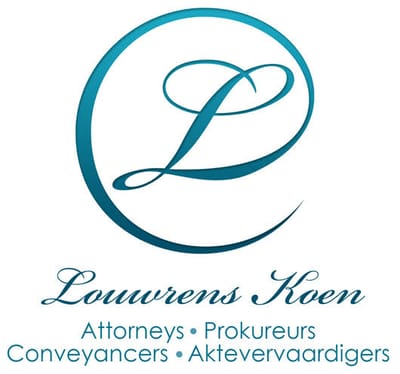
- Statutory Declarations
- Affidavits of all kinds
- Child Travel Consent Letters
- Same Name Affidavits
- Power of Attorney (for property & personal care)
- Wills & Estate Documents
- Legal Agreements
- Antenuptial Contracts
- Cohabitation Notarial Agreements
- Notarial Bonds
- Ships Protests
- Cessions
ONLINE QUOTATION
CONTACT US
WhatsApp - Talk to Us
Notary Copies
Walk-in service. Notary Certified True Copy Original - From R160
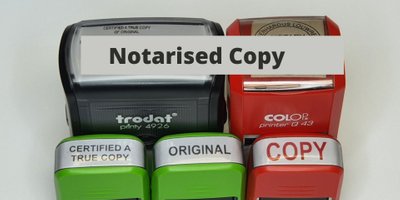
This is a photocopy of an original document which is verified by a notary public to be an accurate copy of the original. This is done when an official document (such as an ID, government papers, educational credentials etc.) needs to be provided/submitted to a third party. Often the original document is one of kind and it becomes impractical to give it away. Normal photocopies could be doctored or altered. The notarised copy of the original document is objective evidence of the accuracy of the image. We will need to inspect the original document.
Legalisation of Notarised Copy - Apostille, Authentication or Embassy Legalisation
The notarised copy of the document can be legalised for use in any country of the world. Depending on the destination country the process will differ.
Get Quotation Online - notarised copy and document legalisation -
Complete the online form and we will get right back to you with a no obligation cost quotation and time frame estimate. Use the integrated encrypted facility to upload your document you want us to check.
Message Us Get a Quotation
WhatsApp - Talk to Us
about the office of Notary Public in South Africa
about the office of Notary Public in South Africa
Steeped in history, dating back to Roman times, the Notary Public is a highly respected and trusted position, providing an efficient and contemporary service for those with international business and legal matters. A notarius was appointed as a public official to create written documents of agreement or wills and hold them for safekeeping.
A Notary Public in the South African context is a practising attorney with an additional qualification who has been admitted by the High Court. As a result, a Notary Public has been given statutory and common law powers to prepare and attest certain specialised legal documents, administer oaths, and perform wide-ranging administrative functions of a national and international nature.
The functions of notaries specifically include the preparation and witnessing of certain types of specialised documents. These specialisations include documents for use internationally, deeds for registration in various public offices, wills, and powers of attorney, administering oaths, witnessing signatures on affidavits, statutory declarations, certifying copied documents, noting, and protesting bills of exchange, and the preparation of ships’ protests.
Get a Quotation
Notary Costs
What is a Notary Public?
WhatsApp - Talk to Us

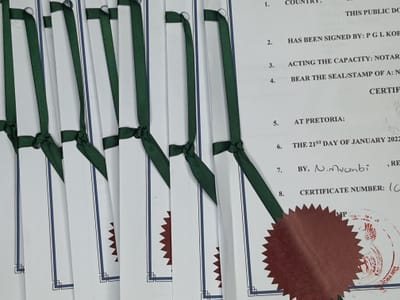
expunge criminal record south africa
HOW WE ASSIST YOU YO REMOVE OR EXPUNGE YOUR SOUTH-AFRICAN CRIMINAL RECORD?

If you meet the criteria, you can apply to have your record expunged, a free service offered by the Justice Department and the Constitutional Development department. However, we understand the process might be overwhelming, which is why we are here to help you.
With Louwrens Koen Attorneys you’re not alone
Louwrens Koen Attorneys is your legal companion. Our experts can help advise you on how to follow the correct legal procedure and what legal steps you might be able to take to clear your criminal record.
Read more on our dedicated website about the service.
WhatsApp - Talk to Us
Functions of a Notary Public in terms of the Registry of Deeds Act
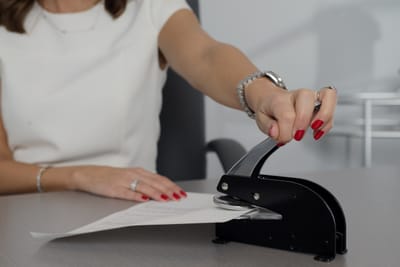
Functions A notary is entitled to exercise certain functions:
(a) Personal servitudes (for example usufruct, habitatio and usus) must be attested by a notary.1
(b) Certain contracts must be registered in the deeds registry to be of any force or effect and must be notarially attested before they can be registered.
These include:
- antenuptial contracts,
- servitudes,
- long leases of land,
- notarial bonds and prospecting contracts.
- A notary authenticates certain formal documents, and his authentication is regarded as authoritative.
- A notary is also ex officio a commissioner of oaths and may administer an oath on an affidavit or take a solemn or attested declaration whenever requested or when such affidavits or declarations are required by law.
In their capacity as an attorney, a notary may be asked to draft numerous documents and may also, if requested to do so, notarially execute any agreement or form of contract, whether such contract is required by law to be notarially executed.
A notarially executed document makes proof of the document easier in the event of the original being lost, given the precautions the notary must observe in connection with their protocol
Get a Quotation
Notary Costs
What is a Notary Public?
WhatsApp - Talk to Us
CONSENT FOR MINOR CHILD TO TRAVEL. NOTARISED AND AUTHENTICATED

Child abduction has become a growing concern for governments around the world. For this reason, “Consent to Travel” letters are required by an increasing number of governments. When a child travels without one parent, the remaining parent gives written permission for the child/children to leave the country. It is often required that the document be notarised and legalised to verify the signature and identity of the parties involved. This document would be presented to various authorities in South Africa and abroad as evidence that the child/children travelling abroad have not been abducted by their accompanying adult.
Some documents, such as Child Travel Consent forms, are not only necessary but also helpful in keeping children protected. Child Travel Consent forms reduce the risk of abduction or child trafficking. This keeps children safe and prevents missing children from leaving the country.
How do you know if it is needed?
It is best to check with South African Foreign Affairs, your airline, travel agent, or government officials in the country you are visiting to see if it is required. Travelling without consent to travel can lead to travel delays or even denial of exit/entry by one or more of your groups.
Regulations may not require you to provide a Child Travel Consent form if you are flying with children but be sure to check the airline or country border control requirements. Even if a form isn’t legally required, a Child Travel Consent form is highly recommended. Without the proper documents, officers or attendants may not allow you or your child to travel in or out of the country.
Having your Child Travel Consent witnessed or notarised decreases the chance of travel authorities questioning its validity. The country you are travelling to and the airline you are using will affect the legalisation process.
Children Traveling with One Parent
If your child is travelling with only one parent, that parent will need a Child Travel Consent letter that has the other, non-travelling parent’s name, signature, and a short statement authorizing the travel arrangements.
A common scenario for a child traveling with one parent is when the parents are separated or divorced. Custody arrangements can be complex and modify the rules for travel in different ways, but in general it’s important that the child has a travel consent form signed by the non-traveling parent.
With separated parents, it’s also recommended that the parent traveling with the child carry extra documents that demonstrate proof of guardianship, like custody papers, adoption papers, and the child’s birth certificate,
Similar rules apply for a child traveling with adult relatives, like a brother, sister, aunt, uncle, or grandparents, but in this case the travel consent letter must contain the name and signature of both parents instead of just one.
For international travel, some countries may require specific or additional documentation. You can check requirements with the embassy of the country your child is traveling to for more information.
What should the Consent to Travel contain:
We are happy to notarise and authenticate your consent to travel letter for use in any country in the world. It is a quick and effortless process for you. Not sure where to find one? For a small additional fee, we can draft your consent to travel on the spot – without an appointment. message us for more information.
- The child’s contact information
- Both parents’ contact information
- The child’s travel arrangement (one parent, no parents, chaperone, group travel etc.)
- The child’s destination and dates of travel
- Proof of their relationship to their child
Get a Quotation
Notary Costs
What is a Notary Public?
WhatsApp - Talk to Us
NOTARISING & LEGALISING COMPANY DOCUMENTS SOUTH-AFRICA
Company document legalisation made simple. Apostille, Authentications, Embassy Attestations, Document Legalisation & Notary Public Services for Company Documents in Pretoria
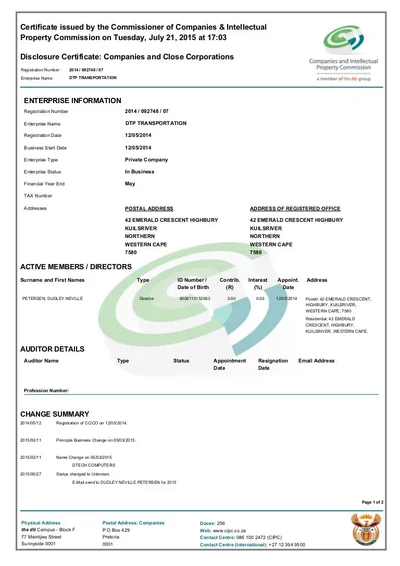
Company documents are usually required when Companies are looking to set up international branches, conduct business in another country or open company bank accounts overseas.
Starting the legalisation of Company documents is simple. We can also help you with downloading or replacing documents.
The most common types of company documents we legalise with the apostille certificate are -
- Incorporation Documents - Including the Certificate of Incorporation, Memorandum and Articles
- Annual Return
- Appointment of a Director
- Change of a Director’s
- Termination of Appointment of a Director
- Company Accounts Company Change of Name Documents
- Resolutions
- Share Certificates and Shareholding Changes
The legalisation of the company documentation will be different depending on the country where the documents will be used. If the destination country is not a member of the Hague Apostille Convention, the documents will have to be legalised using the Document Authentication Process and probably Embassy Attestation at the Embassy of the destination Country in Pretoria. Please take a look at our informative articles about Apostille Certificate Services and Embassy Attestation Services.
Your company documents must be legalised correctly. Our expert and professional service ensure your documents are checked, certified by a Notary Public when required and issued using the correct document legalisation process. For your information and advice on obtaining an apostille for your documents don't hesitate to contact one of our legalisation office experts.
Click Here to get a no-obligation quotation to legalise South African COMPANY & CLOSE CORPORATION DOCUMENTS for an overseas country.
Get a Quotation
Notary Costs
What is a Notary Public?
WhatsApp - Talk to Us
SIGNATURE OF AFFIDAVITS, statutory declarations, CONTRACTS, FORMS AND DOCUMENTS BEFORE NOTARY Public
Notary Signature Service Pretoria South-Africa. Louwrens Koen Attorneys.
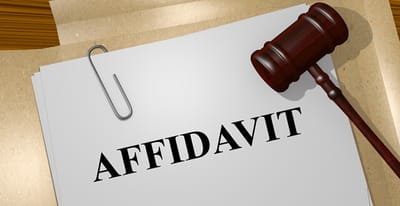
We charge a fee of R850 per attestation, including consultation with the notary. Legalisation and the document courier can be done at an additional cost.
What are the requirements for the document's form and wording?
For the document or form to be legally binding, it will need to be drafted by the local laws of the country where the transaction is to take place. As an example, if. For example, if you live in South Africa but own an apartment in Spain and would like to appoint a person in that country to manage it, your document will need to be worded to reflect Spain's laws-Africa. Usually, the records are prepared by lawyers in the country where the document is intended to be used. Once it is ready, it is sent to South Africa for it to be signed before a Notary Public.
Notary signing requirements for the document?
The requirement as to how the document is to be signed may vary from country to country. It may need to be signed only in front of a Public Notary, or one or more witnesses may be required to be present in addition to the Notary. After being notarised by the Notary Public, the document may need to be apostilled, authenticated or legalised by the High Court, Department of Foreign Affairs and possibly the applicable Embassy or Consulate, depending on the destination Country of the document. This means that along with how the document should be notarised, instructions should be sought on whether it requires an Apostille, Authentication and legalisation for it to be legally recognised in the country of intended use. Our firm is experienced in notarising and legalising document documents for ultimate use in most countries worldwide. We deliver a comprehensive document attestation and legalisation service, which serves, among other things, includes:
- Consultation and appearance before a Notary Public for signature.
- Notarial Attestation Certificate.
- Notarial Copy of Identity document/Passport.
- Legalising the document for international use through an Apostille certificate or authentication process depending on the country of intended use.
- Courier the completed legalised documents to your chosen destination country.
Get Quotation - Get Started
Most customers order and quote online. Submit the online form, and we will get right back to you. If you are unsure how to complete the order form or need any advice on additional service, feel free to message us for professional, free advice. Tel: 0870010733.
Get a Quotation
Notary Costs
What is a Notary Public?
WhatsApp - Talk to Us
PASSPORT - NOTARISED & APOSTILLED COPY
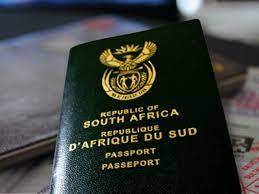
For more information, please complete our no-obligation quotation form.
Get a Quotation
Notary Costs
What is a Notary Public?
WhatsApp - Talk to Us
DOCUMENT CHECK & PREPARATION OF YOUR DOCUMENTS
We check and prepare your documents before submission.

If you make a mistake in this first step you will need to restart the process from the beginning, losing time and money. Read on for information on this crucial step or contact our friendly experts directly to get your questions answered.
How to Prepare Your Documents
Preparing your documents for the authentication and legalization process can involve any of the following:
- having your documents notarised
- having a notary make certified true copies of your documents
- having certified translations made of your documents
- Provide required supporting documents
How can you help me?
When submitting the online quotation form you can use the safe incorporated facility to upload your documents for a free check. If necessary, we will discuss your situation with you to determine the specific document processing requirements that apply. We’ll then help you with these preparations, ensuring your documents are ready for the authentication and legalisation process. Submit our online quotation form to get GET STARTED and we’ll get right back to you.
Get a Quotation
Notary Costs
What is a Notary Public?
WhatsApp - Talk to Us
Notarise and LEGALISE YOUR TEFL CERTIFICATE SOUTH-AFRICA
When you’re offered a job teaching English abroad, you may be asked to legalise your TEFL certificate. “Legalisation” is a way of proving to foreign governments and employers that your official documents are genuine.
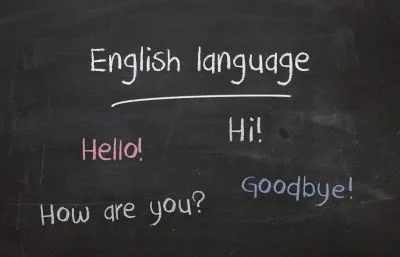
In general, you need to legalise documents in the country in which they were issued. The steps for legalisation differ depending on the destination country where the document will be used. You will either follow an Authentication, Apostille or Authentication and Embassy Legislation Process. It's usually best to esquire with the foreign entity what legalisation steps they require.
Step 2: Get your documents Notarised
Before you can get your TEFL certificate legalised, you need a notary public to notarise it. There are notaries all over the world, so search for “notary public + your local town” to find one close to you. The notary will advise you on which documents are required to certify your qualification.
Step 3: Legalise your TEFL certificate
Attend the High Court, DIRCO and Foreign Embassy. While the High Court is a walk-in service DIRCO, and the Embassy will require you to drop off and pick up the document at a date in the future.
It usually takes between 7-10 working days for DIRCO to process your documents – so you should receive your legalised TEFL certificate back within a couple of weeks. Various certificates and stamps would be added to the document. Check our example page in this regard.
Step 4: Use your legalised TEFL certificate
The apostille certificate means that your TEFL certificate will be accepted as a legal document in any country or state that has signed up for an international agreement known as Convention 12 of the Hague Conference. If you want to work in a country that isn’t a signatory of this agreement, they will usually request that you firstly get the apostille and then take your documents to the relevant embassy for further authentication. Always make sure you check visa requirements in advance.
Other Documents. Wait there is more?
Remember that simultaneously with the above process you will also be required to supply further legalised documents: Police Clearance Certificate Notarised passport copy SAPS Police Clearance Certificate Health certificates Academic qualification certificates such as degrees or diplomas.
Although you can do the process yourself be aware that getting the process wrong may be costly. It will also take considerable time and multiple attendances. Rather let the experts facilitate the process on your behalf.
Discounted Attestation Service for TEFL PACK Customers
Legalising TEFL PACK of documents
We are pleased to offer exclusive, discounted rates for legalising documents for TEFL customers. We aim to make the process of document attestation as simple as possible. Simply order online, send your documents to us and we will ensure they are correctly attested!
This refers to the 3 documents needed to be legalised to be able to teach English overseas. (Degree or Diploma, Police Clearance and TEFL Certificate)
Get no obligation quotation to legalise TEFL pack of documents
Submit our online quotation form to get GET STARTED and we’ll get right back to you.
Get a Quotation
Notary Costs
What is a Notary Public?
WhatsApp - Talk to Us
LAST WILL AND TESTAMENT - AUTHENTICATE OR APOSTILLE FOR ASSETS OUTSIDE SOUTH-AFRICA
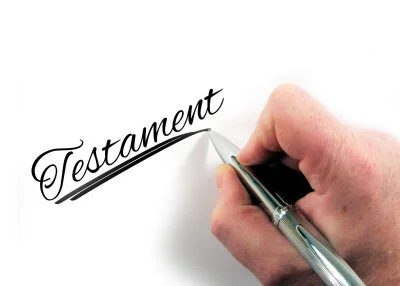
Usually, the executor will need to provide the death certificate and the last will and testament. The last will and testament. There may be additional documents required but this would be determined the requirements of the local authorities in the country in which the assets are held. The last will and testament will require notary public certification to be eligible for the apostille.
If you require assistance with legalising a last will and testament or any of the associated documents, please get in touch, please complete our online quotation form.
Submit our online quotation form to get GET STARTED, and we’ll get right back to you.
Get a Quotation
Notary Costs
What is a Notary Public?
WhatsApp - Talk to Us
SIGN STATUTORY DECLARATION BEFORE NOTARY PUBLIC
Legalise the document for use anywhere in the world. Document Legalisation and Notary Public Services Pretoria. Louwrens Koen Attorneys
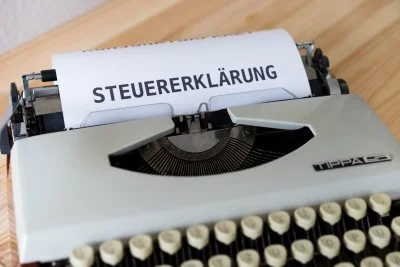
Statutory declarations are made for many reasons. You can legally declare a statement of fact on a wide range of subjects.
Common reasons people make a statutory declaration include-
- Changing their name
- Confirming they are free to marry
- Confirming a previous marriage is now dissolved
- Confirming their own identity with passport information
- Confirming a document is an exact copy of the original
- Confirming a legal document has been lost
Get a no-obligation quotation for notary attestation of your signature and legalising the document. Most customers order and quote online. Submit the online form and we will get right back to you. If you are not sure how to complete the order form or need any advice on additional service do not hesitate to message us for professional free advice. Tel: 0870010733.
Submit our online quotation form to get GET STARTED and we’ll get right back to you.
Get a Quotation
Notary Costs
What is a Notary Public?
WhatsApp - Talk to Us
Contact Notary Services / Map
- Louwrens Koen Attorneys, 416 Kirkness Street, Arcadia, Pretoria, South Africa
- Or search for Louwrens Koen Attorneys on Google Maps or Waze
- +27-0870010733 - Louwrens Koen Attorneys
- +27-0736869078 - Zune Naude - Document Legalisation Specialist
- law@louwrenskoen.co.za
- Mon-Fri - 08:00-16:30
About Our Notary Public Services PRETORIA
A LITTLE HISTORY BEHIND OUR ENTERPRISE
We offer a full range of Notarial Services including taking declarations and affidavits, certification of original documents, verification of identity, corporate verification, obtaining of Authentications or Apostilles from the Department of Foreign Affairs, the High Court and obtaining legalisation of documents from South African based Embassies or Consulates.
Our aim is to provide you with an efficient, professional and convenient service and we look forward to being of assistance to you. We deliver a long standing, highly regarded notarial service known for producing quality and accurate documentation.
Please don’t hesitate to contact us – all enquiries welcome.
Louwrens Koen is a practicing Attorney, Conveyancer and Notary Public in Pretoria, South-Africa with more than 25 years of experience. He was admitted as Attorney by the High Court in 1995 after completing the BLC and LLB degrees from the University of Pretoria. He is also an university guest lecturer in Conveyancing and Notarial practice and heads the Boutique Law firm Louwrens Koen Attorneys. He has vast commercial and legal experience and this expertise compliment his activities as a Notary Public. As Notary Public he has assisted thousands of Clients with their Notary and Document Legalisation needs.
Message Us Get Quotation WhatsApp - Talk to Us

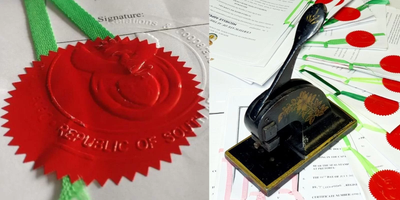
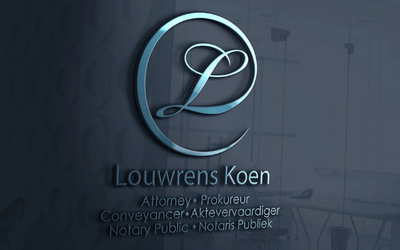
Team - Notary Services
Louwrens Koen - Notary Public
Practicing Attorney, Conveyancer & Notary Public South-AfricaLouwrens Koen is a practising Attorney, Conveyancer and Notary Public in Pretoria, South Africa. He was admitted as an Attorney in 1995 after completing his BLC and LLB degrees from the University of Pretoria. He is a university guest lecturer in conveyancing and notarial practice and the author of numerous legal articles.
Hanelie De Beer (LLB)
Candidate AttorneyHanelie joined the firm 9 years ago. She has facilitated thousands of document legalisations. She completed her LLB degree part time and is currently completing het candidate legal practitioner articles.
Zunè Naudè
Document Legalisation SpecialistTestimonials
What you will need before an Appointment with a South-African Notary Public

The document or documents which require the seal and signature of the notary. Please make sure that you do not sign or have it witnessed before the appointment. It is imperative that everything is done in the presence of the notary.
Any instructions which have been given by the lawyer or foreign Notary who has prepared the document. There are sometimes requirements about signing each page or even the color of the ink.
Your passport or, South African Identity document which bears your photograph. If you have difficulty producing such original documents, I shall need to discuss with you what evidence of identity I shall need to see to satisfy myself that you are the person you say you are.
If you have received the document electronically, please forward it to our email address in advance of the appointment. Please check the document carefully for errors in your name, address and passport number. If we have received the document electronically we should be able to make any necessary amendment to the document.
Any additional questions with regards to the requirement for a notary appointment please do not hesitate to get in touch.
Message Us Get Quotation WhatsApp - Talk to Us
Making an Appointment to see Notary Public
Making a Notary Appointment – Important Considerations

Appointments for Notary Public work will generally take place in the firm’s Pretoria Office. Still, they can arrange to meet you at your office or home if necessary, although this will increase the cost of the notary service.
Preparing for the notary appointment usually, we will:
- Expect you to make an appointment.
- Need you to bring good evidence of identity. Generally, this will have to be a currently valid identity document or passport.
- Need to be satisfied that you understand any document, particularly one that is not in English.
- Want to see any relevant papers or documents related to the matter?
Your Documents are to be notarised
Remember the documents which need to be signed or certified.Please only sign the document/s after you come to our office.
Please pay attention to making sure that your documents are complete. That is, where the supplier of the documents (your lawyer or agent) has supplied documents with square brackets or blank spaces, these must be completed before we will notarially attest anything signed by you,
If your document refers to documents which are to be annexed or shown with the main document, I would also like to provide them. This is a common scenario when swearing oaths, affidavits or making statutory declarations before a Notary. We cannot notarise something which refers to accompanying documents if those accompanying documents are not provided as to do so would be misleading.
We are happy to print off documents which you have emailed but please note: if you are emailing us documents or forms, they must be complete.
For security reasons, we do not allow thumb drives to inserted into our network. We will print out and allow small amendments from dedicated computers for clients to draft documents or to amend documents.
Endeavor to have the documents available in their final form for signing.
If it is apparent to the Notary that:
- you are unsure of the nature of the documents that you present to us,
- are acting under duress
- or do not understand the implications of what you are doing,
How long will it take?
If the document is straightforward, already prepared, and in the correct form, the notary will likely need to see you for a minimum of 15 minutes. It will take longer if the document is not straightforward or if we have to draw up the document or make a good copy. If legalisation by apostille or embassy is required, it will usually take several days unless
The notary public is generally available only during office hours. Nevertheless, it may be possible, where the document is urgent, to make arrangements to see you in the evening or at the weekend.
We act for clients with businesses based in Gauteng and the surrounding area.
WhatsApp - Talk to Us
If you want more information, to schedule an appointment, or have questions, don't hesitate to contact us.
Get Quotation - Get Started
Most customers order and quote online. Submit the online form, and we will get right back to you. If you need help with how to complete the order form or need any advice on additional service, feel free to message us for professional, free advice. Tel: 0870010733.
Submit our online quotation form to get GET STARTED, and we’ll get right back to you.
Get a Quotation
Notary Costs
What is a Notary Public?
WhatsApp - Talk to Us
Notary Certified copies of documents
If you have been asked to provide a certified copy, it means that the Notary will certify a copy of an original document to be a true copy of the original document which the Notary has seen. We must see the original document. We cannot offer a certified copy of a copy, we can only offer a certified copy of the original. In many cases some documents are now only supplied in electronic form.
Get a Quotation
Notary Costs
What is a Notary Public?
WhatsApp - Talk to Us
SIGNING FOREIGN LANGUAGE Documents IN FRONT OF A NOTARY
Do the Notary Attesting Signature need to be conversant in the language of the document?
We may not be conversant with the language contained in your document but our Notary is able to assist you with foreign language documents provided that you can show evidence that you understand the content of the document. When we can help:
- The document is in your native language or you can show proficiency in the language.
- It is clear to us that you have been assisted by a professional adviser overseas.
If we are unable to establish the central issue that you are fully understand the contents and effects of the document which you are signing, our Notary will refuse to verify your signature on the document because by doing so, it will be implied that you have demonstrated your understanding to us or that the Notary is conversant in the foreign language and has explained its contents to you. If you do not have an understanding of the contents of a foreign language document which you have been asked to have notarised, please obtain a professional translation of it. We can arrange this if necessary. Often clients are asked to provide a ‘sworn’ or ‘certified translation. This is usually where the receiving jurisdiction has an official translating service provided by an organ of the state. Such circumstances do not exist in the UK and the next best thing is for a Notary to certify that a translation has been professionally undertaken. We can help clients with this requirement.
Get a Quotation
Notary Costs
What is a Notary Public?
WhatsApp - Talk to Us
Legal and/or procedural advice regarding the correct legalisation of your sa documents
Take guidance from law and practices of the destination country where your legalised documents will be used.
You should check with the person or organisation with whom you are dealing with overseas as to their exact requirements. As outlined below, we are generally asked to certify your signature and identity and cannot advise you with authority the exact requirements of the entity with whom you are dealing.We can offer rough guidance on what is normally required in the territory in which you are dealing with but it is best to seek confirmation of the exact requirements with the people with whom you are dealing with on the ground.
We would specifically ask you to seek confirmation as to whether an Apostille is required or whether consulate legalisation is required.
Get a Quotation
Notary Costs
What is a Notary Public?
WhatsApp - Talk to Us
Dealing with Foreign Embassies / Consulates in SOUTH AFRICA
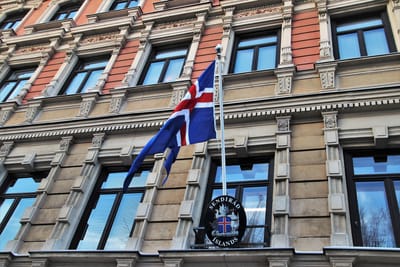
After the Notarisation, the document must be authenticated by the High Court and the Department of Foreign Affairs (DIRCO) in South Africa. After these two steps are conducted, the certified document will be sent to the relevant embassy/consulate in Pretoria, South Africa.
When documents are to be legalised for the use, they can be requested toe documents receive an official stamp from the relevant embassy/consulate. The procedure can differ depending on which country you require documents to be legalised can vary. The powers and unique nature of the embassies can set the agenda for what they need, how the applications are completed, what supporting documentation is required, and even how payment is made.
Payment is another example of differences between embassies/consulates. Some methods by which embassies/consulates request payment include electronic funds transfer, credit card, cash and even US dollars.
Before the embassy/consulate for which you require documents legalised, it is advisable to go online or call the embassy/consulate to order out the exact procedure and fees applicable for your documents in order and money eventually.
However, if you require assistance navigating the sometimes-cumbersome legalisation task, please don't hesitate to contact us at law@louwrenskoen.co.za or call Tel: 0736869078 or complete our ONLINE QUOTATION form.
Get a Quotation
Notary Costs
What is a Notary Public?
WhatsApp - Talk to Us
IN PERSON NOTARISATION -LOUWRENS KOEN NOTARY PUBLIC
Walk In Notary Public Services
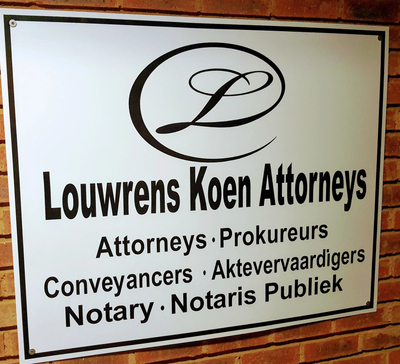
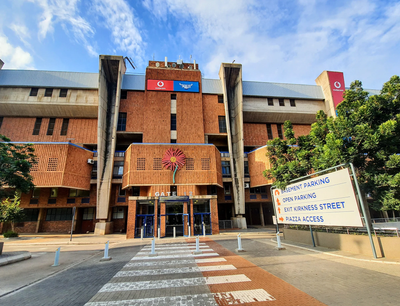
Our Notaries can notarise, commission, or certify any document if it is done in person.
Ample Free and Safe Parking!
MAP TO OUR OFFICE
You can call Tel: 087 0010 733 to check the Notary's schedule.
Submit our online quotation form to get GET STARTED, and we’ll get right back to you.
Get a Quotation
Notary Costs
What is a Notary Public?
WhatsApp - Talk to Us
Mobile Notary gauteng area
Can’t attend our office? We’ll come to you!

- Convenience
- A document requires the signature of multiple parties, and it is difficult to have everyone attend our office
- You don’t have the time to travel to our office
- Hospitalisation
- Inability to travel due to a disability or lack of transportation
- You find it more convenient to have a notary attend your office or home
Submit our online quotation form to get GET STARTED, and we’ll get right back to you.
Get a Quotation
Notary Costs
What is a Notary Public?
WhatsApp - Talk to Us
Glossary of Notary Public Terms
Basic explanation of the terminology related to notarial practice.
GLOSSARY Basic explanation of the terminology related to notarial practice.
ATTACHMENT A formal act performed by the sheriff of the court in terms of an order for execution issued by a court and an authorising writ of execution, whereby the judgment creditor acquires a judicial real security right to the object attached in fulfilment of the judgment debt.
ATTEST To bear witness; to affirm the validity of something (e.g. the signature on a document). Depending on the context in which the word is used, attest can also mean ‘‘to bear witness and sign”.
CAVEAT (see also Interdict) (in the conveyancing context) A notice of warning entered by the registrar of deeds (see s 3(1)(w) of the Deeds Act). It indicates a possible prohibition against dealing with a right to property or the possible restriction on the capacity of a registered holder of a right to act, for example in terms of a provisional sequestration order or other provisional order.
CEDE (in the notarial and conveyancing context) The transfer of a right (a claim [personal right] or a limited real right) by the holder of the right (the cedent) to the person who takes the transfer of the right (the cessionary).
CERTIFICATE OF CONSOLIDATED TITLE A substituting title deed in terms of which two or more pieces of land belonging to the same owner (or more owners holding each component in the same undivided shares) are consolidated. No transfer of ownership is affected, and the certificate is issued in place of the existing title deeds of the constituent components.
CERTIFICATE OF REGISTERED TITLE A substituting title deed is issued in place of an existing title deed, which does not affect any transfer of ownership. It is merely an extract of facts from the existing title deed(s).
CERTIFIED COPY A duplicate (e.g., a photocopy) of a document to which a certificate is attached, confirming that the copy is a true version of the original document.
CLEARANCE CERTIFICATE A receipt issued by a local authority as proof of payment of taxes and levies.
CONVEYANCER A public officer admitted and authorised by the High Court to prepare and execute documents for registration in terms of the provisions of the Deeds Act and the Sectional Titles Act. Only a practising attorney may practise as a conveyancer (see also, the definition of ‘‘conveyancer” in s 102 of the Deeds Act).
DEED (see also Document) For the purposes of this guide and unless the contrary appears, ‘‘deed” includes reference to a deed of transfer, a substituting title deed, a mortgage bond or a notarially executed contract.
DEED OF GRANT A title deed (a ‘‘deed of transfer”) by means of which acquired or unalienated state land is transferred by the state to a new owner (see s 18 of the Deeds Act).
DEED OF PARTITION TRANSFER A deed of transfer whereby, in terms of redistribution, a demarcated portion of land or a new undivided share in the land (where the co-owner relationship is to continue) is transferred to a co-owner in the place of their original undivided share in the land. The redistribution can be in terms of an agreement or a court order.
DEED OF SALE A document containing a contract of sale. A deed of sale is an agreement in terms of which a party (called the seller) sells a thing to another party (called the purchaser), who purchases the item.
DEED OF SERVITUDE
A document containing a servitude agreement. It is drafted and attested by a notary and is registered in the deed’s registry.
DEED OF TRANSFER
A document prepared by a conveyancer and registered in the deed’s registry, evidencing the transfer of the ownership of land from the owner, called the transferor, to the acquirer called the transferee.
DEEDS REGISTRY
A central government office where the transfer of ownership and other limited real rights over immovable property and related issues are noted and registered in terms of the Deeds Act and the Sectional Titles Act, and where the evidence of such registrations and notations are kept. See the definition of ‘‘deeds registry” in s 102 of the Deeds Act, where ‘‘deeds registry” (deeds office) is defined as follows: (a) when used about immovable property, the deeds registry, which serves the area in which that property is situated; (b) when used about any deed or other document, any deeds registry in the Republic wherein that deed or other document is registered or registrable; (c) when used about a registrar, the deeds registry of which they are in charge.
DIAGRAM
A map of a surveyed piece of land which indicates the measurements and extent of the land, drafted by a surveyor and approved by the Surveyor-General or another competent official (compare the definition of ‘‘diagram” in s 102 of the Deeds Act).
DOCUMENT
(See also Deed) For the purposes of this guide and unless the contrary appears, the document includes all documents that do not qualify as deeds. This guide, refers mainly to a power of attorney, consent, a waiver, an application, a notice, a clearance or a statement.
DOMINANT TENEMENT
The tenement (immovable property) in favour of which a praedial servitude (over the servient tenement) is exercised. EXECUTE (in the notarial and conveyancing context) The formal act of signing a document or deed, thereby giving it full effect.
EXECUTOR A person whose appointment as such is confirmed by the Master of the High Court and who is responsible for the winding up of a deceased estate. This term also includes any legally acknowledged representative of a deceased person.
GENERAL PLAN
A plan which represents the relative positions and dimensions of two or more pieces of land and has been signed by a person recognised by law as a land surveyor, and which has been approved, provisionally approved or certified as a general plan by a Surveyor General or other officer empowered under any law to approve, provisionally approve or certify a general plan. It includes a general plan or copies thereof prepared in a Surveyor-General’s office and approved, provisionally approved or certified as aforesaid, or a general plan which has at any time, prior to the commencement of this Act, been accepted for registration in a deeds registry or Surveyor-General’s HABITATIO (habitation)
A personal servitude that entitles the holder and their household to inhabit the building of an owner while preserving the substance of the dwelling for a specified period or if the holder of the right lives.
IMMOVABLE PROPERTY
Land and everything that is permanently attached to the land (see, however, the definitions of ‘‘immovable property” and ‘‘land” in s 102 of the Deeds Act).
INTERDICT
A notice entered (against a title deed) by the registrar of deeds (see s 3(1)(w) of the Deeds Act). It indicates a prohibition against dealing with a right to property, for example, in terms of an attachment or that there is a restriction on the capacity to act of a registered holder of a right in terms of a final sequestration order.
LEASE (deed of lease) A document containing a reciprocal agreement in terms of which a person (normally the owner), called the lessor, agrees to grant the use and enjoyment of a thing for a prescribed period, in return for the payment of monetary remuneration, to another a person called the lessee.
LODGMENT
The formal handing in of deeds or documents at the deeds registry for the purpose of registration.
LONG-TERM LEASE A lease for ten years or longer.
MASTER OF THE HIGH COURT
A chief executive officer of the High Court who supervises the winding up and administration of deceased and insolvent estates.
MORTGAGE
A limited real security right to the thing of another as security for the payment of a debt. A distinction is made between a mortgage over immovables and a notarial mortgage over movables.
MORTGAGEE
The person or institution who, as the mortgage creditor, on registration of a mortgage bond acquires a mortgage over the immovable property of the mortgagor.
MORTGAGE BOND A document prepared by a conveyancer and registered in a deeds registry in terms of which the mortgagor grants a mortgage over their immovable property in favour of the mortgagee.
MORTGAGOR The person or institution who, as mortgage debtor, presents his, her or its immovable property, in terms of a mortgage bond, as security for payment of the mortgage debt to the mortgagee.
NOTARIAL MORTGAGE A mortgage over movable property embodied in a notarial deed of hypothecation.
NOTARIAL MORTGAGE BOND A document prepared by and executed before a notary and registered in the deeds registry in terms of which the mortgagor grants a mortgage over their movable property (specifically or in general) in favour of the mortgagee. A notarial mortgage bond is generally and, also in this guide, referred to as a ‘‘notarial bond”.
NOTARY
A public officer admitted and authorised by the High Court of South Africa to prepare, execute and attest contracts and other documents and to authenticate public acts under the supervision of the High Court, and who must have passed a specialised examination prescribed by the Law Society in terms of the statute. Only a practising attorney admitted as a notary may practise as a notary. (Compare the definition of ‘‘notary public” in s 102 of the Deeds Act.
Notary Appointment Checklist
Handy Notary Appointment tips

To make sure your appointment runs as smoothly as possible here are a few things for you to do:
1. The document:
Make sure you have all of the pages of your document needing to be signed ready. If you email your Notary a copy of the document to be signed before your meeting, this would be really helpful. This assists the Notary to prepare the certificate in advance and will shorten the time of your meeting. It also helps the Notary to offer you advice on whether you need an apostille or embassy legalisation.
2. Bring the correct identification:
The Notary needs to confirm your identity to ensure you are the correct person to sign the document. You must bring valid identification documents with you. When you meet your Notary, you will need two forms of identification which match the name on the document to be notarised. Preferred documents are a current Passport or Identity Document both having a photo ID.
3. Be Organised:
You can carry out some simple checks to ensure you don’t waste your time. Know how many notarisations you need and leave through the pages to ensure none are missing or incomplete. Make sure everyone who needs to sign the document is present and has their ID documents.
Notarising a document is not as always as simple as turning up at the Notary’s office and signing something. To make sure your appointment is successful, take the time to follow these tips.
Get a Quotation
Notary Costs
What is a Notary Public?
WhatsApp - Talk to Us
Notary Public & Document Legalisation Info and articles
Informative articles regarding the role and function of Notaries Public & Document Legalisation Services in South-Africa
The rationale behind this is that individuals, organisations and government authorities want to know that a document or signature is authentic and when a document comes from another country, they may want an international certification.
Read MoreYes, a Notary Public is an admitted attorney who has passed the practical examination in respect of the practice, functions and duties of a notary. This is a very specialised further qualification which few attorneys obtain.
Read MoreA Notary Public is an attorney admitted and authorised by the High Court of South Africa to witness signatures, draw and attest contracts and statements, and authenticate the validity of certain documents. A Notary is also a practising Attorney with a specialised further qualification
Read MoreHow much does it cost to notarise a document in South Africa? Document legalisation and notary service are dependent on the circumstances at hand and in which destination country your document will be presented. Exact pricing is not available until you communicate the factual situation to us. In order to find out what you need and for us quote you, please complete the secure online form below to get the exact costs and time estimate. You can use the incorporated facility to upload any documents you would like us to check.
Read MoreWhat is the difference between a Notary Public and other authorised persons witnessing my signature?
What is the difference between a Notary Public and other authorised persons witnessing my signature?
Read MoreIf you are required to sign the document you need it Notarised then the document must be signed in the presence of the Notary, do not sign the document, and then send it to us. We will not be able to assist. If you do need a signature, then for our notary to assist you, you must bring along your ID or Passport.
Read MoreIf you can’t get to us, we can travel to you. Submit the online form with your request. Use the incorporated facility in the form to safely upload a scan of the document for us to check. We will get back to you with a quote. We do charge a reasonable call-out fee and will advise on the cost during our response. We can travel to the office address or any safe destination of your choosing. We can legalise the signed and notarially attested document for use in any country in the world in which case the Notary will take the document with them. The legalised document is delivered back to your office or couriered to any international destination.
Read MoreWe can deliver your documents anywhere in the world. Choose to have the document delivered to your home, your workplace, another business, your future employer, a family member, or a friend. If you are local to our office, you can collect the documents in person
Read MoreInternational Delivery of notarised & Legalised Documents - dhl
International delivery of your legalised documents. We deliver your legalised documents anywhere in the world.

Our experience gives us confidence that DHL carrier will ensure quick delivery of your document/s within three (3) to five (5) working days calculated from the day the parcel is collected from our office by its representative.
However, as it is a public courier, sometimes unexpected delays may occur beyond our control.
Also, if the nominated delivery address is outside a country’s capital or major city, a delivery delay may occur.
Our responsibility to our client for delivery of processed documents ends when our DHL courier issues us with a Waybill upon payment of its prescribed delivery fee and collected from our office. We cannot control deliveries after that point of time. We accept no responsibility for loss, damage, destruction or delays due to courier problems or insufficient or incorrect addresses or phone contacts provided to us.
Note that our standard DHL delivery charges do not include insurance for loss, damage, destruction, or delay in delivery of couriered documents. If protection insurance is required, extra fees are payable. Email us to arrange this additional service.
local delivery of your legalised documents - the courier guy
We can deliver your notarised and legalised documents anywhere in South-Africa

If you have already couriered your documents to us and only require us to courier them back to you, we have a specific price for return couriers within South Africa or for an international address.
We also offer a "collect courier" service to collect your documents from any address you provide. However, this service comes at a higher cost as we instruct a courier company to collect the documentation from your address. Please ensure that your documents are ready in an envelope when the courier arrives.
Before couriering your documents, we usually scan and email them to you for your records. Once your package has been couriered, we will send you the waybill with the tracking number and information. This will allow you to track the progress of your package until it arrives at your doorstep.
What is a Notary Public?
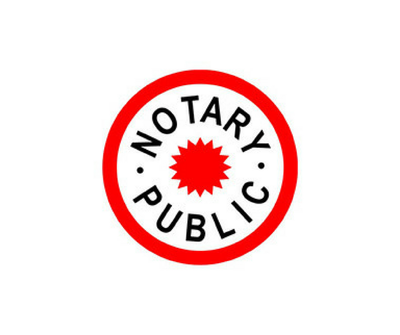
What does a Notary do?
Part of a Notary's duty is to screen the individuals who sign important documents for their true identity, their awareness of the contents of the document or transaction, and their willingness to sign without coercion or intimidation. Some situations require a Notary to put the individual under oath and declare under penalty of perjury that the information in a document is true and correct.
A Notary Public has to have impartiality as a foundational value. They need to be duty-bound and thus cannot act in situations with personal interest. The public trusts that the Notary's screening tasks are corruption-and self-interest free. Impartiality also assures that a Notary never refuses to serve a person due to their religion, race, nationality, politics, sexual orientation, or status as a non-customer.
By law, the following documents need to be drawn up by a Notary:
- Antenuptial Contracts
- Long-term Leases
- Servitudes (personal and praedial)
- Cession of Rights in Sectional Title Schemes
- Notarial Bonds
- Marriage certificates
- Birth certificates
- Death certificates
- Single status certificates
- Divorce certificates
- Police clearance certificates
- Powers of attorney
- Copies of IDs or passports
- Educational documents
Get a Quotation
Notary Costs
What is a Notary Public?
WhatsApp - Talk to Us
How do I prepare my documents for APOSTILLE, authentication & DOCUMENT legaliSation?
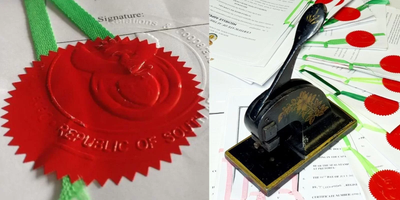
- The recipient abroad should advise you what documents they need, whether they must be originals, and how they want them processed.
- You must meet the criteria of the authentication process. Whether you will authenticate with VIA a Notary Public and the High Court or at DIRCO and the appropriate embassy. Each have specific criteria for authentication.
- Each embassy or consulate also has their own specific requirements and rules for submission of documents for legalization. You must ensure you also meet their criteria for legalisation.
WE CHECK AND PREPARE YOUR DOCUMENTS
Get a Quotation
Notary Costs
What is a Notary Public?
WhatsApp - Talk to Us
Tel: 0736869078
Who Can Certify Documents in South Africa?
Certification is the act of confirming the validity of a document.
When applying for something like a mortgage, bank account or a new job abroad, you may be asked to provide a certified copy of a document. Certified copies are a crucial tool used to guard against fraud.
Who can certify documents in South Africa?
Typically, the list will include notaries, attorneys, advocates, and commissioners for oaths. In some instances, it includes a wide range of persons including accountants and magistrates.
How Is Certification Done?
You will need to provide the certifier with the original document. They will then make a photocopy of the original and certify the photocopy. The exact wording of the certification can depend on the organisation requesting the document. Different organisations, particularly from different countries, often have different requirements.
Documents With Photos
When certifying the document with a photograph, such as a passport, driving licence or ID card, the certifier will write the following:
Write “Certified to be a true copy of the original seen by me” on the document
Write “‘I certify that this is a true likeness of [title and the full name of the individual as appears on the document].’
Sign and date it
Print their name
Add their occupation, address and telephone number
Documents Without Photos
For all other documents without photos the certifier will write the following:
Write “Certified to be a true copy of the original seen by me” on the document
Sign and date it
Print their name
Add their occupation, address and telephone number
Multiple Pages
If the document has multiple pages, the certifier may write the certification on the first page and state how many pages are included in the certified copy. Alternatively, if required the certifier can sign and stamp each page of the certified copy.
The certifier will securely attach or bind multiple pages together to ensure they are not tampered with.
What if You Don’t Have the Original Document?
If you do not have the original document, certification can still be completed if you can provide the certifier with evidence of the source of the document. For example, if you have an electronically issued bank statement or utility bill, you will need to show the certifier how you log in to the app or website of the bank/utility company and then download the PDF of the document.
If the document was only issued to you via email, you will need to show the certifier the original email in which the document was attached as a PDF. The certifier may then also need to contact the issuer to confirm that the document was in fact issued by them.
Notarial Certification
Certification by a notary is called notarial certification or notarisation. In South Africa, only a notary can notarise documents. Only notaries may offer notary services.
A notary public can certify a copy of a document. The notary may either attach a separate notarial certificate containing the certification or write the certification on the photocopy itself.
Notarial certification will include a notary seal impression on either the notarial certificate or photocopy. The notary seal is unique to each notary and provides evidence that the notary has certified the document.
The use of a notary seal dates to antiquity and, prior to the introduction of ink stamps, was the main method of certifying documents.
Why Is a Notary Public Certification Preferred?
A Notary Public is a professional specialising in the certification of documents. If you are going to use the document abroad, you will need to use a Notary Public.
They have undergone a two-year training course covering key aspects of the certification process for use across jurisdictions. Notaries will be able to explain the certification process in detail and ensure it is completed correctly. Notaries are internationally recognised and are regarded as the highest level of authentication in most countries.
How to Certify a Translation
Any translation should be accompanied by a written statement from the translator.
The following statement or something similar should be written on the document: “true and accurate translation of the original document”
Sign and date it
Print their name
Add their occupation, address, and telephone number
If the translation is to be used abroad, you will also need a notarial certification. If the notary didn’t translate the document, they will only be able to certify a copy of the translator’s certified translation or confirm the authenticity of the translator’s certified translation.
Certification from Outside of South Africa
You do not need to be based in South Africa to get your documents certified in South Africa. You can courier your original document to us, and we can complete the process for you.
You may not even need to post the documents to us. If you send us a scan of the document, we may be able to verify the authenticity of the document directly with the issuer and provide relevant certification.
Contact us and we can advise on how best to get your document certified.
Certification of documents is an essential process in the business world. Several trusted professionals can complete it; however, it is always best to check the requirements of the organisation asking you to get it done to see who they will accept certification from.
Notarial certification is the highest level of certification you can get and is typically required for documents used outside of South Africa. South African Notaries are legal professionals specialising in certification and will carry out any verification needed to ensure your document is correctly certified.
Do you need your passport or proof of address certified to open a bank account?
Do you need your educational certificates certified for a new job?
Contact us today at 0736869078 or email law@louwrenskoen.co.za.co.za to get your documents certified by experienced and highly professional notary publics.
Can you help me to legalise my documents?
Document Legalisation Services - Apostilles, Authentications & Embassy Attestation South Africa
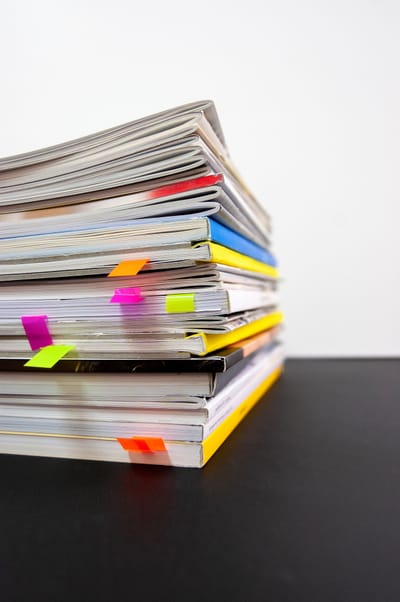
We can certainly handle the document legalisation process on your behalf. You send your documents to us, and we will handle the rest, often in as little as a few days. This process consists of three steps:
- Document preparation – we make sure your documents will meet the criteria of each step of the process.
- Document authentication – we will have your documents authenticated at the Notary, High Court and DIRCO.
- Document legalization – we will have your documents legalised at the embassy or consulate of the destination country.
WE CHECK AND PREPARE YOUR DOCUMENTS
Get a Quotation
Notary Costs
What is a Notary Public?
WhatsApp - Talk to Us
Tel: 0736869078 E-mail: law @louwrenskoen.co.za
EXPERT APOSTILLE CERIFICATE SERVICE - PRETORIA
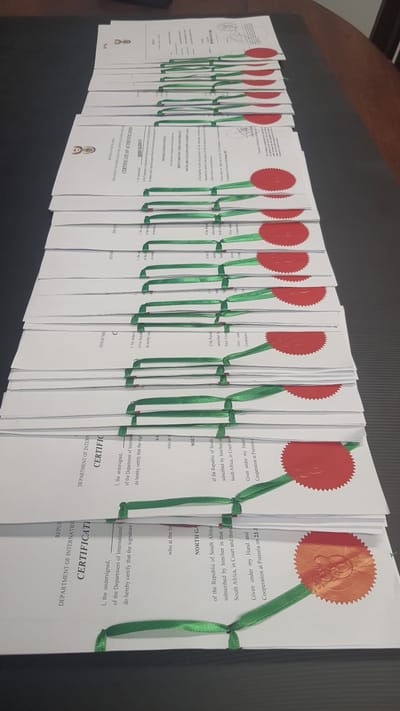
Introduction to Apostille:
What is an Apostille and why is it necessary?
An Apostille is an official authentication certificate for public documents that are used abroad. It certifies the origin of the document and verifies the signature or stamp on it. The Apostille certificate is necessary when a public document from South Africa will be used in a foreign country, especially if the country is a signatory or member state to the Hague Convention of 5 October 1961.
Understanding the Hague Convention: South Africa and the Hague Convention
South Africa is a member of the Hague Convention that abolishes the requirement of consular legalisation for foreign public documents. Under this Convention, member countries have agreed to replace legalisation with a single formality, the issuance of an Apostille certificate. The Convention facilitates the exchange and verification of public documents, and an Apostille is required for all contracting states.
Verifying the authenticity of public documents:
Why is an Apostille certificate needed?
The recipient of a public document in the Country of Destination cannot judge the authenticity of the document merely by looking at it. He or she may not be familiar with the identity or official capacity of the person signing the document or the identity of the authority whose seal or stamp it bears. Hence, states/countries require that the origin of a foreign public document must be certified by an official who is familiar with the document. This is why the process of authentication was developed, which refers to verifying the origin of a public document.
Documents that require Apostille:
Which documents need an Apostille certificate?
Some of the documents that often require an Apostille certificate include Home Affairs documents and Police Clearances (Birth Certificate, Marriage Certificate, Death Certificate, Divorce Decrees, Letter of No Impediment to be married abroad), Academic documents (SA Degree and Diploma certificates, TEFL certificates, Foreign degrees, Other academic Apostilles), and Other documents (Background Check, Single Status Affidavit, Power of Attorney, Copy of Passport, Copy of Driver’s License, Transcripts, Authorisation Letter, Travel Consent Letter, Articles of Incorporation, Certificate of Good Standing, Certification of Free Sale, Certification of Origin, Corporate Power of Attorney, Commercial Invoice). Please note that some of these documents may have to be notarised before being apostillised.
What does an Apostille from South Africa look like?
Apostille Certificate appearance
An Apostille from South Africa is an extra page bound or attached to the original document. It states that the person issuing or signing the document is legitimate and verifies the signature on the document and/or the stamp affixed to it. The Apostille page is attached by a ribbon.
Do I have to notarise and apostille my documents?
Notarisation and Apostille requirements In some cases, official South African documents will have to be notarised before being apostillised. If the country where you intend to use the document is also a signatory to the Hague Convention, then only an Apostille certificate is required. However, it is the responsibility of each individual to find out whether they require an Apostille or Certificate of Authentication attached to their document. Usually, the authority to which the document is being submitted can advise on this.
Conclusion:
In conclusion, obtaining an Apostille certificate is a necessary step when using South African public documents abroad. It certifies the origin of the document and verifies the signature or stamp on it, facilitating the exchange and verification of public documents.
Notarial authentication – In a FRAUDUlENT world
Notarial authentication is a crucial process in confirming the authenticity of a document.
Louwrens Koen Attorneys, Conveyancers and Notaries Public, a boutique law firm located in Pretoria, offers high-quality online legal services to clients.
Documents require authentication in certain transactions and actions, such as purchasing or selling offshore property, transferring money to/from an offshore account, contracting with a foreign party, applying for a job abroad, or transporting a minor child without the consent of the other parent. In South Africa, documents must generally be authenticated by a Notary Public and have an Apostille certificate attached to be accepted for use abroad.
With the rise of virtual and electronic transactions, it's important to consider the provisions of the Electronic Communications and Transactions Act (ECT Act) when certifying a copy of an original document. The act provides guidelines for assessing the integrity of electronic information and determining if it meets the requirement of being presented in its original form.
However, notaries are not immune to fraud, especially in a virtual environment. The National Notary Association suggests notaries take precautions such as verifying the signer's identity, ensuring they are signing willingly and understanding the document, and protecting their seal and journal records from unauthorised access.
To ensure a successful notarial authentication process, notaries should check the identity of the person signing the document, verify their willingness and understanding of the document, and take responsible steps to protect their stamp, seal, and protocol. They should not rely solely on trust or familiarity with the person.
SA Academic Credentials Verifications Service
We represent a privately owned apostille and documentation legalisation services firm. We are not a government department . We charge for speedily and successfully obtaining and legalizing various documents.
We understand the importance of verifying academic credentials for individuals seeking employment and employers looking to hire qualified candidates. That's why we offer a comprehensive South African Qualifications Verification and Legalisation service designed to provide accurate and reliable verification of South African and foreign academic qualifications.
Certificate Verification:
This verification confirms the authenticity of the certificate and the qualification it represents.
Transcript Verification: This verification confirms the academic transcript's authenticity, including a record of the courses taken and the grades obtained.
Experience:
We have years of experience in the field of academic qualification verification and have helped numerous individuals to obtain accurate and reliable verification letters for their academic qualifications.
Expertise: Our team of experts is well-versed in the SAQA verification process and can provide guidance and support throughout the process, ensuring that your verification is handled efficiently and accurately.
Efficiency: Our verification process is designed to be quick and efficient, with a turnaround time that meets your specific needs. We understand that time is of the essence when it comes to verification, and we strive to provide a hassle-free and reliable service.
Confidentiality: We understand the importance of confidentiality regarding your academic credentials and ensure that all information provided to us is kept secure and confidential.
Accuracy: We are committed to providing accurate and reliable verification services that meet the highest quality and security standards. We understand the importance of having verified academic credentials and strive to provide verification services you can trust.
In summary, our SAQA academic qualifications service is designed to provide a hassle-free and reliable verification process for your academic qualifications. With years of experience, a team of experts, and a commitment to accuracy and security, we are the ideal choice for your SAQA verification needs.
Contact us today to learn more about our SAQA academic qualifications service and how we can assist you with your verification needs.
